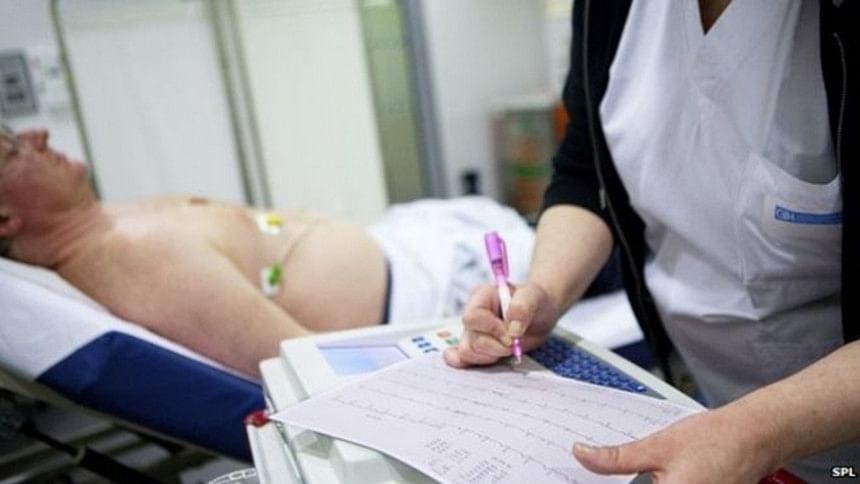Depression makes heart failure worse

People with heart failure must be screened for signs of depression and offered counselling, scientists say.
A small study presented at the European Society of Cardiology suggested patients with depression were more likely to die within a year.
Though many factors are likely to influence this - including the severity of the disease - researchers say managing depression is important.
And charities advise people to seek help through specialist nurses and GPs.
Prof John Cleland, chief investigator in the study, who works at both Imperial College London and the University of Hull, describes heart failure as a "modern epidemic" that affects 900,000 people across the UK.
But despite trying to find better drugs and improved procedures there is no cure, Prof Cleland told the BBC: "Being heart specialists we have focused on trying to find medicines, devices, and operations."
"They work but not as well as we would like. So we have decided to step back and look at the bigger picture," he added.
Higher death risk?
Heart failure can happen when the the muscle of the heart becomes too weak or too stiff, making it harder to pump blood around the body.
And as this becomes worse patients can feel very tired and short of breath.
As part of a continuing investigation, Prof Cleland's team asked 96 patients, who had been admitted to hospital with heart failure, a series of questions to assess whether they were depressed.
Those who showed signs of moderate or severe depression were more likely to have died in the 300 days that followed.
Though this link has been shown before, scientists generally thought this was down to people with depression suffering from a more severe form of the condition.
While the Hull scientists acknowledge this is likely to play a part, they say it is does not account for the full picture.
For example, while measuring NT-proBNP - a hormone that can be used to help monitor the severity of the disease - they found little difference between people who had severe depression and those who did not.
It is likely that other factors are important as well; some people with depression may not feel motivated to take their pills or seek help quickly, scientists suggest.
Researchers say these questions, and their early findings, need to be explored and evaluated in bigger studies.
Meanwhile Julie Ward at the British Heart Foundation, said: "We know depression is both a risk factor for heart disease and is often experienced by people who have had a major heart event."
"Every person with a long-term physical health condition, like heart disease, should be treated for both their physical and psychological symptoms equally.
"Talk to your GP or heart specialist nurse and discuss the options that could be available to you," she said.

 For all latest news, follow The Daily Star's Google News channel.
For all latest news, follow The Daily Star's Google News channel. 



Comments